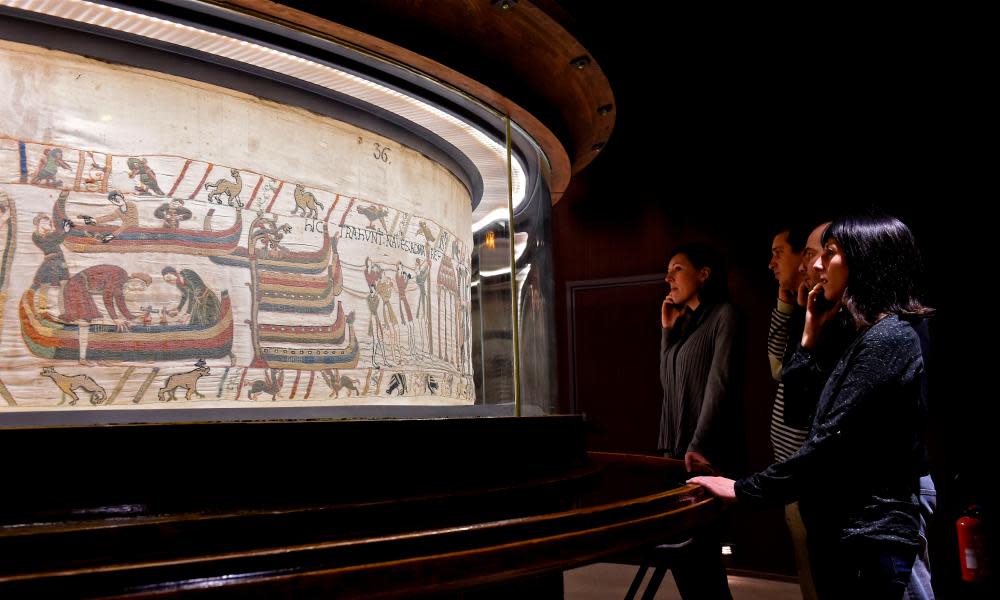The Guardian view on Anglo-French relations: Brexit’s entente cordiale

The recent history of relations between British prime ministers and French presidents is characterised by a gap in affection bridged by recognition of common interest. David Cameron, Gordon Brown, Tony Blair and Margaret Thatcher had complex, sometimes tense alliances with François Hollande, Nicolas Sarkozy, Jacques Chirac and François Mitterrand. None lost sight of the need to manage an ancient rivalry with professional cordiality. In that spirit, on the eve of a summit meeting with Theresa May, Emmanuel Macron has approved a plan for the Bayeux tapestry to be displayed in the UK. This is a demonstration of Mr Macron’s fluency in gesture, pointing to two nations’ shared cultural ancestry. But their two leaders are far from kindred spirits.
Mr Macron styles himself as a crusading pro-EU centrist – a personified antidote to the ethos of Brexit that defines Mrs May’s leadership. There are other tensions, predating the UK’s decision to quit the EU but complicated by it, notably the migration bottleneck at Calais. Mr Macron has pledged to renegotiate the Le Touquet accord that allows UK border police to operate in France. Within France his handling of asylum and immigration – with humane rhetoric undone by callousness on the ground – has dismayed his political base. The Calais border is sure come up at Thursday’s summit, with reports suggesting the UK will pay more to prevent migrants crossing the Channel. There will be a show of Anglo-French cordiality, highlighting defence and security cooperation.
The UK’s decision to leave the EU is the unavoidable backdrop to Mr Macron’s visit. It also introduces a power imbalance into the relationship. Mr Macron is one of the most influential figures in those Brussels forums that Britain has unwisely chosen to quit, and where the shape of a final deal will be decided. Mutual understanding will be elusive when the two leaders have diametrically opposed European instincts. With Britain at the exit and Germany’s Angela Merkel weighed down by long incumbency, Mr Macron sees a leadership vacancy among EU nations. He certainly doesn’t lack the confidence to fill it. The French president is accused by domestic critics of vanity on a Napoleonic scale. And while his energy in domestic affairs is beyond doubt, his capacity to lead European renewal is less obvious.
Mr Macron’s theory is that far-right populism thrives because EU leaders are too timid in extolling the moral purpose of their project and slow to drive it forwards. He urges structural reforms to the eurozone alongside pan-European universities and common European policies on defence and tax to boost economic, political and cultural solidarity. Such things give nightmares to British Eurosceptics. Their removal emboldens the EU’s more integrationist tendency.
Mr Macron has cause to be grateful to the Tories. Their Brexit folly is his opportunity. But he should also heed the British experience. Euroscepticism is not unique to the UK. While it is true that the EU’s virtues are undersold, it is also the case that grandiose continental visions can reek of elitism, giving succour to nationalists. And while France is fortunate to have a leader committed to membership of the EU and its renovation, Britain’s referendum experience is a cautionary tale for pro-European politicians. The French president and the British PM are temperamentally and politically ill-matched, but their dialogue could still be fruitful. With such divergent perspectives on the forces that can undermine European partnership, they might have much to learn from one another.

 Yahoo News
Yahoo News 
